| |
|
Sunday, April 20 Beth Am~Second Night Seder
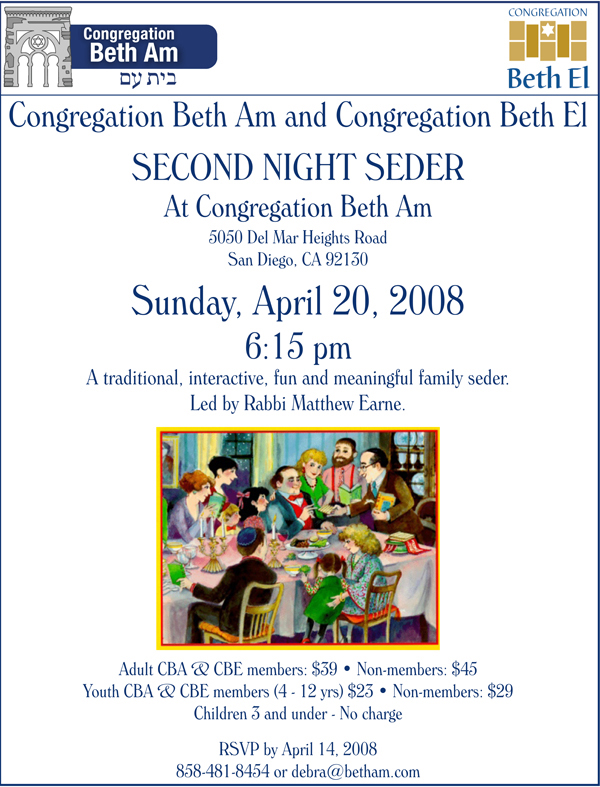
FRIDAY, MAY 9Shabbat service celebrating Israel at 60

Sunday, May 18 Community Israel Independence CelebrationWednesday, May 28 JFS~Ellen Saks lecture on mental illness
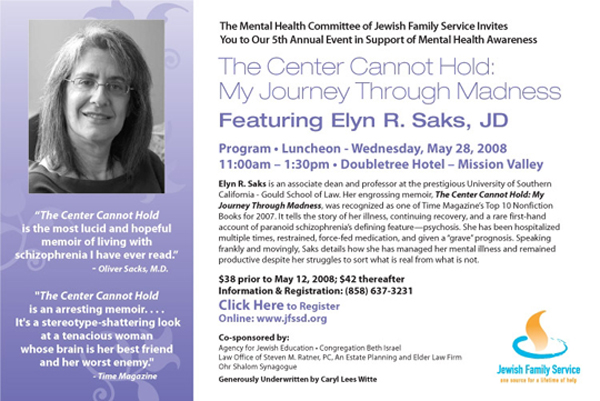

AJC PERSPECTIVES
Israel has domestic political chametz which
it would be well to sweep out before Pesach
By Dr. Eran Lerman
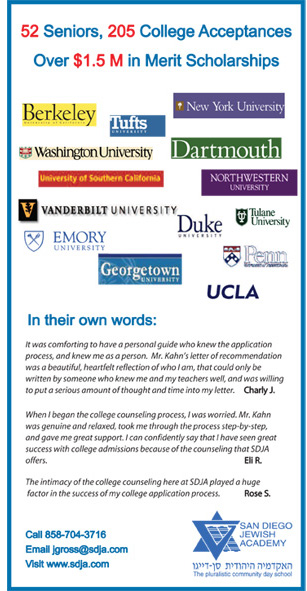 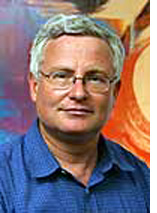 JERUSALEM—Israelis reading their daily papers at this time should not be blamed if they reflect somewhat gloomily on the state of the state, and on what the Zionist endeavor may have come to, as we prepare to settle down to our Seder tables this weekend. On our borders, a tense waiting period is upon us—both in the south (where even the extreme provocation at the Nahal Oz fuel depot has not yet led to a cessation of gas supplies, let alone a more extensive Israeli retaliation) and in the north (where Hezbollah’s revenge for Imad Mughniyah’s death may trigger a broader conflict at any time). JERUSALEM—Israelis reading their daily papers at this time should not be blamed if they reflect somewhat gloomily on the state of the state, and on what the Zionist endeavor may have come to, as we prepare to settle down to our Seder tables this weekend. On our borders, a tense waiting period is upon us—both in the south (where even the extreme provocation at the Nahal Oz fuel depot has not yet led to a cessation of gas supplies, let alone a more extensive Israeli retaliation) and in the north (where Hezbollah’s revenge for Imad Mughniyah’s death may trigger a broader conflict at any time).
Yet the news crowding the front pages nearly to the exclusion of all else (v’gam zu l’tova, this too is for the best, as the saying goes, insofar as we are no longer suffering a daily deluge of terror attacks) is mostly about domestic affairs, few of them pleasant:
- Former President Moshe Katzav decided to ditch the plea bargain he was offered and to challenge, in court, the notion that he ever raped or molested any of the women who worked for him—opening the floodgates to a long, bitter, and destructive legal battle.
- An alarming number of ongoing stories about child abuse—including a number of cult-like cases with truly depraved practices; these deviations, to judge by recent exposures, seem to be more common, albeit not pervasive, in the closed, self-regimented world of ultra-Orthodox communities. Almost as troubling was the lame response from within their ranks; many rabbis seemed more rattled by a recent court ruling that, in effect, allowed selling bread (in nonpublic spaces) on Pesach than by the reported horrors.
- The recurrent wave of accusations, indictments, and convictions on corruption charges (just yesterday, the mayor of Kiryat Shemona, Haim Barbivai, was found guilty of taking kickbacks from contractors) reinforces a cynical mood toward politics—mixed with more than a touch of nostalgia, as we get ready to mark the sixtieth anniversary of our independence, for the likes of David Ben-Gurion and Menachem Begin.
- Amidst all this, a real political and intellectual battle is brewing—or more accurately, is already being fought at full blast—over the basic issue of judicial review, which much troubled the American founding fathers and has now come to haunt us. This debate emerged, perhaps, because the Israeli Supreme Court during the Aharon Barak era moved heavily into the realms they felt had been left to the whims of corrupt or unreliable politicians. The new minister of justice, Daniel Friedman—a highly respected professional, not a political figure, but generally considered to be the agent of Prime Minister Ehud Olmert in this endeavor—is openly committed to a shift away from the pattern of interventionist interpretations of the court’s role (which the present chief justice, Dorit Beinisch, whom Barak called “my sister,” is trying to uphold). This could have been a legitimate debate, but side by side with the merits and demerits of each constitutional view has come an increasingly ugly personal and partisan confrontation.
A nice pile of hametz to sweep away! The economy may still be doing well (although the global financial tremors are felt here as well); the arts are flourishing; there is much that life in Israel today has to offer. But the sense of unease lingers, not least because the political leadership, internally divided and uninspiring, fails to present a coherent vision.
In the realm of security and foreign affairs, there has been, in fact, a good degree of progress:
- In the various tracks of talks with the Palestinians (which both sides are trying to move forward in time for George W. Bush’s second visit, in May);
- In our relations with moderates in the Arab arena, as was clearly demonstrated during Foreign Minister Tzipi Livni’s visit to Qatar, where she addressed a global conference on democratization and even met with the management of Al Jazeera to discuss Israeli grievances about their bias;
- In handling the delicate dance of deterrence and de-escalation with the Syrian regime, which seems clearly interested in avoiding a direct confrontation;
- In finalizing a package of American long-term gestures—the so-called “Bush Legacy”—to be presented to Israel on its birthday next month;
- Most importantly, in finding ready ears in the world when it comes to Iran, now that all the key powers in Europe are led by strongly pro-Israeli (and pro-American) figures.
But even this interesting new landscape is at times hidden from sight, either because diplomatic discretion (quite rightly) favors silence, or because the overt tensions between the three key players—Olmert, Livni, and Defense Minister Ehud Barak—once again gives a personal and political twist to the achievements, some of them quite real, of the present government.



FROM THE SIDELINES
In Israel, water is an issue that is of both technological and theological concern
By Rabbi Dow Marmur
 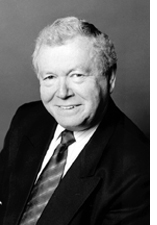 JERUSALEM—In Israel, each time I take a shower I feel guilty, for personal hygiene may not be in the national interest. The reason is, of course, shortage of water. We’re told that this year and the next, Israel will be short of some 350 million cubic meters of water. Though the experts say they don’t want to spread panic, the information is very alarming. JERUSALEM—In Israel, each time I take a shower I feel guilty, for personal hygiene may not be in the national interest. The reason is, of course, shortage of water. We’re told that this year and the next, Israel will be short of some 350 million cubic meters of water. Though the experts say they don’t want to spread panic, the information is very alarming.
The problem isn’t new, of course. One of the first songs we were taught in my Zionist youth group in post-war Poland was “Mayim, mayim, water, water.” Then I couldn’t quite understand why that should be an issue; now I know.
Nor did I make the connection between another of our Zionist songs of those days: the biblical phrase, “Eretz zavat chalav u’dvash, a land flowing with milk and honey.” Much later someone “explained” to me that in a country where there’s neither oil nor water, all you’re left with is milk and honey.
Now I know that that’s not enough and therefore, like most Israelis, I worry about water. I’ve even heard pessimists say that of all the threats that Israel is facing today, including Iran, the shortage of water may turn out to be the most devastating. Already this year swimming pools will go empty, parks will go dry and agriculture will suffer.
Optimists, on the other hand, suggest that, in the same way as reduced oil supplies have increased the prospects of developing alternative fuels, so will the shortage of water result in more desalinization and sewage treatment. But that will require more energy, which is in short supply, too.
The pessimists-optimists divide is also reflected in discussions about the prospects of peace. Everybody agrees that the use of water resources will be an important item in final status negotiations. Pessimists say that the matter is even more intractable than Jerusalem. Optimists assure us that, once Israel solves the problem, the Palestinian state and the rest of the Middle East will benefit beyond imagination.
Progress is being made. Last year Israeli farmers used more water from sewage treatment plants than fresh water. Binyamin Ben Eliezer, the minister responsible for water, has called for the production of an additional 200 million cubic meters of desalinated water.
Modernists tend to believe that technology will be more effective in meeting the shortage in water supply than theology. For throughout our history prayers for rain and institutionalized fasting in times of draught as ways to propitiate the Heavens has been an important part of our tradition. Of course, the two aren’t mutually exclusive. We who believe that miracles can only happen when all human resources have been exhausted have reason to see current water research as an important aid to prayer and supplication.
I’m told that my rationalization for staying away from Israel during the summer months as a way of saving the country the water that we won’t be using doesn’t wash. Whatever the restrictions on horticulture and agriculture, we’re assured that there will be enough water for households.
Scientific evidence, even in the pessimistic versions, insists that it’s better to stay in Israel and keep clean, irrespective of water restrictions, than to live elsewhere, even if the swimming pools there are always open. So now I feel guilty about not staying in Israel. It’s hard to be a Jew.

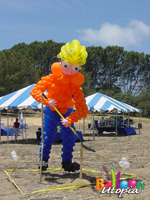 |
Balloon Utopia
Sandi Masori
619 339 8024
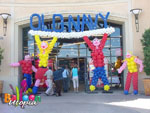 |
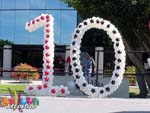
! |
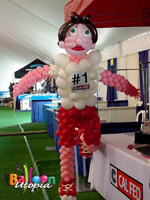 |

David Noel Freedman: an appreciation
By William Propp. Ph.D
LA JOLLA, California—On April 8, 2008, Professor David Noel Freedman of the University of California San Diego passed away, at the age of 85. We had been temporary colleagues a few years previously, when he first spent a term as Visiting Professor in Judaic Studies, and I was a lowly lecturer in modern Hebrew instruction. In 1987, Noel was recruited to the faculty by Richard Elliott Friedman as the first incumbent of the newly-created Endowed Chair in Hebrew Biblical Studies—thus creating unending confusion as to the spelling of each of their last names!
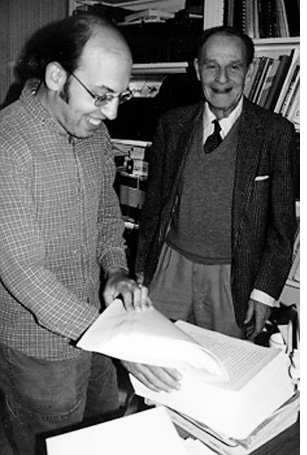 American biblical scholarship in the first half of the 20th century was dominated by William Foxwell Albright of the Johns Hopkins University, a master archaeologist, linguist and historian. For the second half of the century, his students and successors were the twin colossi of Frank M. Cross of Harvard (my own doctoral mentor) and David Noel Freedman, associated since 1971 with the University of Michigan, Ann Arbor. I consider myself blessed to have been the student of one of these men, and to have shared an office wall with the other. In fact, both I and my archaeologist colleague Tom Levy (current Director of the Judaic Studies Program) owe our permanent faculty positions to the deal Noel struck with the University during his recruitment. American biblical scholarship in the first half of the 20th century was dominated by William Foxwell Albright of the Johns Hopkins University, a master archaeologist, linguist and historian. For the second half of the century, his students and successors were the twin colossi of Frank M. Cross of Harvard (my own doctoral mentor) and David Noel Freedman, associated since 1971 with the University of Michigan, Ann Arbor. I consider myself blessed to have been the student of one of these men, and to have shared an office wall with the other. In fact, both I and my archaeologist colleague Tom Levy (current Director of the Judaic Studies Program) owe our permanent faculty positions to the deal Noel struck with the University during his recruitment.
Before meeting Noel, from reading and hearsay I had the impression of a brilliant, influential, maverick scholar. Personal acquaintance did not change this much. He was brilliant, he was influential, and he could definitely be idiosyncratic. I was unprepared, however, for his unassuming manner, his puckish chuckle, his courtly charm, his occasional naiveté and his generous support of younger scholars like me. Though 35 years my senior, he treated me as an equal from the beginning to the end.
Among his accomplishments, Noel claimed to be proudest of his multitudinous publications: he was author, co-author or editor of 470 books and articles. His greatest legacy will probably prove to be the Anchor Bible, for which I contributed the two volumes on Exodus. Until the mid-twentieth century, biblical studies (Old and New Testament alike) were dominated by Lutheran German scholarship, and almost all modern commentaries were in ultra-dense German, penned by Protestant divines. In 1956, Freedman and his mentor Albright conceived a revolutionary series of biblical commentaries that would be in English and non-denominational. The level was to be academic but nonetheless accessible to the general reader. Noel did not live to see the completion of the series, but as of 2008 only a few volumes are still incomplete. He read every word of the 87 books in the series, writing voluminous, often witty editorial responses to the authors. Later, he conceived a reference work (the Anchor Bible Dictionary) and the miscellaneous Anchor Bible Reference Library to complement the commentaries, so that the entire Anchor Bible now comprises some 120 volumes.
Noel was the workaholic’s workaholic; into his 60s and 70s, seventy-hour work-weeks were the norm. To me he once gave well-intentioned career advice: “Never say ‘No’ to anything anyone asks you to do.” I observed his lifestyle and learned to say “No” rather freely—sometimes to Noel himself. At any rate, he thrived working at a pace that would have killed an ordinary person, even though cataracts severely limited his vision.
Noel claimed to take the most pride in the books he wrote or midwifed. But, in the end, what kept him going, literally, was teaching. Up until his last week, he participated in a graduate seminar via the Internet from his son’s home in Petaluma. My cherished, final memory is of him pitching, via webcam, a scheme for making this doctoral-level course in ancient Hebrew poetry accessible to 10,000 viewers. Noel held an inextinguishable belief in the public appetite for scholarship about the Bible.
David Noel Freedman was admired and beloved by his students, his colleagues, and a far wider audience that knew him only from lectures or from reading. In his day, he served as the “nerve center” of American biblical scholarship. We were fortunate that he spent a third of his long career in San Diego, and we will miss him.


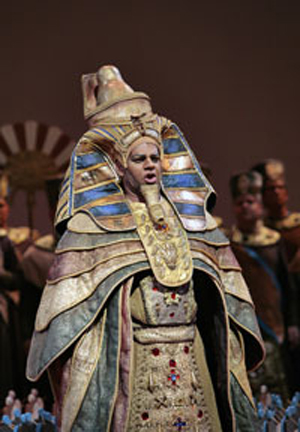 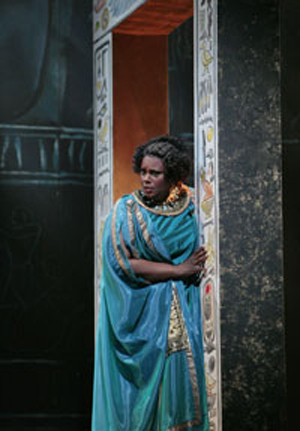
.
)
ARTS IN REVIEW
Speaking of Pharaoh's Egypt: Aida is back
By Carol Davis
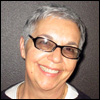 SAN DIEGO—Is it a coincidence that Verdi’s magnificent grand opera, Aida, which opened recently at the San Diego Civic Theatre downtown will be running through Passover? Most likely it is coincidental, but it is food (unleavened at that) for thought. Passover is the holiday we as Jews celebrate the liberation from slavery in Ancient Egypt and it coincides with the Egyptian conquest of Ethiopia. SAN DIEGO—Is it a coincidence that Verdi’s magnificent grand opera, Aida, which opened recently at the San Diego Civic Theatre downtown will be running through Passover? Most likely it is coincidental, but it is food (unleavened at that) for thought. Passover is the holiday we as Jews celebrate the liberation from slavery in Ancient Egypt and it coincides with the Egyptian conquest of Ethiopia.
When Ramades (tenor Carlo Ventre) marches in to Ethiopia and brings home, as part of his winning bootie, the King of Ethiopia (baritone Mark Rucker is Amonsaro) and a bevy of slaves to say nothing of icons, and gold, his daughter Aida (Soprano Indra Thomas) already a slave to Amneris (mezzo soprano Mariana Pentcheva), daughter to the King of Egypt, tries to free him from bondage as well. But it’s not to be Dayanu! Aida has more on her mind than freeing her imprisoned father. Aside from the fact that she has to keep quiet about the truth that her father is the King of Ethiopia and hide her love for Radames, who loves her in return, she also has to convince Amneris that she doesn’t love Radames as well. Amneris is crazy about him and will stop at nothing to have him, including death.
There is nothing small about Aida; it is Grand in every sense of the word. Just a few incidentals: The chorus in Aida is ninety-nine strong. There are eight principals, sixteen dancers, fifty-five supers; seventy-three in the orchestra (the San Diego Symphony Orchestra members under the baton of Valéry Ryvkin were amazing), sixteen wig and makeup crew, thirty four wardrobe hands and the total budget was over one million dollars. Tony winner Michael Yeargan designed the scenery, which was built in 1996. It travels in four trailers. “Aida” has been performed here in San Diego six times, this is the seventh and I never tire of it. I think it is one of the all time favorites of Verdi. Urban legend has it that it was written for the opening of the Suez Canal in 1869 and/or to open the new Cairo Opera House that same year. Unfortunately the synopsis didn’t reach Verdi until 1870, so rule that out.
It is a love story of major proportions with every gut wrenching emotion involved. But it’s the majestic and absolutely magnificent music of Verdi’s that makes you sit up and pay attention and yes, shed a few tears. This current production is no exception. Soprano Indra Thomas, who is making her San Diego debut as Aida, is hailed for this her signature role and she doesn’t disappoint for a moment. She has played it over twenty five times and I can still see and hear her as a woman torn between being loyal to her father and country, a woman at the mercy of both her lover and her mistress and finally a woman willing to die with her lover. Her voice is like a magnet, drawing you to it with exquisite precision.
Marianna Pentcheva is a more than convincing Amneris. Making her San Diego debut, she too shows a strong mezzo-soprano voice with significant, if not over the top, acting to go accompany it. Carlo Ventre, the lucky man torn between two lovers (Radames) takes on the role with ease and conviction. His is a robust tenor delivery, (“Celeste Aida”) and again, he gives us a heart-felt and self-confident interpretation. American baritone, Mark Rucker, who made his San Diego debut as Amonasro in 1996, is reprising the role again this year. Once again, he is one powerful singer and marvelous performer.
As a note of interest to San Diegans, our own Priti Gandhi played A Priestess giving her a back stage, first time soprano debut (she was a mezzo) an enthusiastic outing. There wasn’t a weak link in this not to be missed production.
From the sets (Yeargan) to the dancers, (Kenneth von Heidecke) to the costumes (Peter J. Hall) to the lighting (Chris Rynne) to every performance, this year’s highlight, for me, was Aida. Overall, the only complaint I have is that I won’t have time to see it again.
Future performances are: Friday (tonight) at 8 p.m. , Sunday at 2 p.m. and April 23rd at 7 p.m..
See you at the theatre.


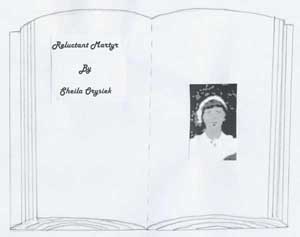 Editor's Note: This is the fourth chapter in our serialization of Reluctant Martyr, a historical novel by our columnist Sheila Orysiek. It is based on the experiences of her aunt. In each Friday-Saturday edition of San Diego Jewish World, we will run another installment of the 21-chapter book until its conclusion. We thank Sheila for granting us first publication rights to her book. Comments are welcome at sdheritage@cox.net Editor's Note: This is the fourth chapter in our serialization of Reluctant Martyr, a historical novel by our columnist Sheila Orysiek. It is based on the experiences of her aunt. In each Friday-Saturday edition of San Diego Jewish World, we will run another installment of the 21-chapter book until its conclusion. We thank Sheila for granting us first publication rights to her book. Comments are welcome at sdheritage@cox.net
Chapters 1 2 3 4 5 6 7 8 9 10 11 12 13 14 15 16 17 18 19 20 21
Reluctant Martyr—Chapter Four
When Joseph told his family and especially his sister, Sharona, that he thought it well to leave his native Russia and seek a safer place in America, it was hard for them to understand. The family was well established and it seemed unlikely war or revolution would invade the peaceful villages, farms and woods. But Joseph persisted and being young and as yet unmarried, the separation was also an adventure for him. Since he did not leave as a refugee and had enough money he traveled in relative comfort aboard a steamer, which in due course arrived in New York. There was a limit, however, on how much money he could take without arousing the suspicions of the Russian authorities.
He took a train south to Philadelphia as he instinctively felt New York was too big for him. Philadelphia was certainly large enough to have all the assets of a metropolis, and yet it felt more comfortable. For the next few days he walked around the downtown section and through the ethnic neighborhoods. When his money ran low he found himself on South Street in South Philadelphia.
The weather had turned colder and winter was approaching. The next two nights he slept in store front doorways which were set deeply back from the sidewalk and therefore provided some shelter from the wind. Each dawn he roused himself early to be gone before the store owners arrived. On the second morning as he walked across a vacant lot filled with trash and debris, Joseph saw a metal bucket in fairly good condition and he picked it up. He also picked up some rags and blowing newspapers. At a public water tap he filled the bucket and then he returned to one of the stores and began to clean the windows. They were very muddied from the last rain and a tailor’s window display could hardly be seen. The windows of the next two stores were also dirty, so he washed them, too. When the owners arrived Joseph pointed out the work he had done. Two of the shopkeepers did not pay him, but the third one did.
These few coins paid for his food for the rest of the day. The next morning he repeated the window washing, working his way down the street and this time several of the merchants paid him. He made sure he had finished before the stores opened and therefore the owners could not stop him and he was not in the way of the customers. Slowly, ever so slowly, he built up a clientele, but of course he was paid a lot less than existing companies demanded. Since he did the work himself he saw to it that it was well done. His hands spent a lot of time in cold water, in frigid weather, and they cracked and bled. Soon, he was able to rent an unfurnished room with cold water only, up seven flights of stairs, and a communal bathroom down the hall. However, it was out of the rain and snow and it did have a stove so he could warm both himself and his supper.
It was a hard existence, but life and hope continued. Joseph strung ropes in his room to dry the rags, bought a second bucket and then one day he hired another man to go with him and so the work load was doubled. Then he was able to move to a furnished room with both hot and cold running water; the bathroom was still down the hall.
At the first store he worked on, Joseph noticed the pretty daughter of the tailor. When he walked in to collect payment the young woman chose to ignore him and her father glared at him. As the window cleaning business expanded workers were added and the tailor became friendlier and the young lady began to glance his way. Now Joseph no longer did the windows himself, but was out each day at dawn to supervise a dozen others and when he asked the tailor for permission to court the daughter, Nora, it was readily granted.
Much change occurred in Joseph’s life during his first year in America. He had learned the language of his new land, had begun a prospering business, and married Nora. He then concentrated on bringing over the eldest child of each family group and the first to come was his sister, Sharona’s oldest, Hannah. By the time he had completed the government paperwork and was able to send for her, he and Nora were living in a three room apartment and their son, Joel, had been born.
Nora was not happy with the prospect of having immigrant relatives from her husband’s family living in their three small rooms. Joseph tried to describe to her the peril he knew his family would soon be in, but as a native born American, she had little concept of imminent personal danger brought on by war and revolution. Joseph, however, was not to be deterred from his plan.
A letter from Sharona arrived telling him when Hannah had left and on which ship she was booked and with great anticipation he awaited the day of her landing. He called the booking office in New York to make certain of the date of the ship’s arrival. Joseph took a train to New York and spent the night sitting in the station. Hours early, he was at the dock and had the joy of seeing the ship approach. Sharona had sent a picture but he still wondered if he would recognize his niece. He scanned each face as the passengers descended the ramp and long after everyone had left, he still hoped. Then, in great anxiety, he went to see the ship’s agent at the dockside office. Yes, Hannah’s name was on the passenger list but no, they didn’t know what had become of her. Perhaps the immigration authorities would know.
Joseph was most reluctant to leave the ship’s side, hoping that his niece would appear, but after a while he decided to go and find the immigration authorities. The busy clerks at the immigration office pointed him toward benches that were already crowded with many others. Eventually everyone else sitting and waiting had left and he sat alone. The hours passed. One clerk replaced another. He could hear the clock ticking on the wall and then he was told to come back tomorrow. Joseph spent the night again on a wooden bench in a waiting room at the train station. The next day he had to begin the process all over again.
“Excuse me, please,” he said as he approached the government clerk behind the counter. “I was here yesterday. I am looking for my niece, she came on the “Majestic”.
“Who?” the clerk asked looking while out of the window over Joseph’s head.
“My niece, Hannah Samuel. She was supposed to be on that ship....”
“Maybe you should call the ship’s passenger office.”
“No, no. She’s immigrating to America and I was told to come back here today.”
“Here? Who told you that?”
“Please, could you look on a list...there must be a list somewhere of the people who came yesterday.”
The man pulled a clipboard off of a nail in the wall. “Hmmm, what name?”
“Samuel. Hannah Samuel.”
“Yes, here she is. She’s being detained,” the clerk said as he turned to go.
“If you please, could you tell me why?” Joseph persisted, “I have come all the way from Philadelphia and I have already spent two nights in the train station. I can’t leave her, she’s only sixteen. Please, can you help?”
The man looked a bit more sympathetic and rechecked some other lists. “Yes, here it is. She has scarlet fever and will be in the hospital for two weeks. Come back in two weeks.”
So Joseph returned to Philadelphia and two weeks later was back again in New York. He was much relieved when, at long last, he was able to greet his niece and welcome her to America. Hannah was still recovering her strength and it was comforting to have her uncle’s strong arm guiding her through the crowded sidewalks and streets. The train south to Philadelphia seemed to travel at a dizzying speed and the countryside was strange to her eyes. There were so many houses, so much industry and winter made the scene depressing.
“Aunt Nora is looking forward to having you,” Joseph said as he put his arm around the back of the seat and hugged her. “She has spoken about it for weeks!”
Hannah smiled at him. “It will be a great pleasure to meet her and your son.”
“I know she will take you all around the neighborhood. She knows a lot of people and she’ll introduce you to everyone. It will be nice for her to have your company.”
“I’m looking forward to it, Uncle. Do we have much further to go?”
“No, no. A trolley after we get off the train. That’s all.” The train stopped at the 30th Street Station in the city and they continued their trip by trolley to West Philadelphia. At 40th and Girard they got off and walked to the tiny three room apartment on Cambridge Street.
Nora came out of the kitchen and greeted her husband as they entered and then she turned to Hannah and with a studied smile spoke in Yiddish, “Welcome dear Hannah! Please sit down.” The baby, Joel, began crying in the next room and Nora ran to him. Hannah sat down and had a chance to look around.
The parlor was very small. It was filled with odds and ends of furniture: an overstuffed sofa, a large chair, toys littering the floor. Overhead a light bulb with a pull string was the only source of light. The furniture was old and obviously well worn. The doubled front window was covered by a brown shade with shredded fringe. A wooden radio sat on a small side table.
Nora saw Hannah’s arrival as an invasion of her household and a burden she resented having to bear but tried to hide it behind a forced smile and stilted speech. Soon she came back into the parlor carrying the baby and said, “Come into the kitchen dear Hannah, supper is ready.”
Hannah followed her and sat at a small table set for three. A highchair was drawn up and the child placed in it and he instantly began crying again. The kitchen, too, was tiny and crowded. In the corner stood an icebox with a pan under it to catch the drip, drip of water. An iron stove with oven beneath and a few cabinets completed the room. What could be seen of the floor was covered by a terribly worn oil cloth.
Nora spooned food into their plates and set them down. The baby sat between Hannah and Nora and immediately toppled his cup of milk into Hannah’s food. She pushed away her sloshing plate and asked if there was some place she could lie down. Hannah was not really hungry anyway, she was exhausted - exhausted from the seasick voyage, still not fully recovered from the scarlet fever, tired from the trip on the train and exhausted from the nervous tension associated with meeting new relatives and the hope of making a good first impression because her family back in Europe depended on her.
“Hannah, darling,” Nora began, “we have the sofa in the parlor for you to sleep on.” It was, of course, obvious that the parlor was the family center and Nora and Joseph were not ready to retire for the night, so Hannah sat next to the crying baby as the others finished their supper.
It was much later, after the baby had finally been put to sleep in his parents’ room, after they had all sat for a while in the parlor, that Nora and Joseph went to their bedroom. A sheet had been spread on the sofa and a rather deflated pillow graced one end. Hannah’s suitcase lay open on the floor; no drawers or closets were available for her use. Fortunately, being only four feet and eleven inches tall, she easily fit on the sofa. It was lumpy. As she lay in the dark with her eyes closed a thousand images floated by; the ocean crossing, the fever, and then all the new and scrambled scenes merged. Her thoughts drifted back to the beautiful house, the peaceful village, the woods, and the family left behind. They were so very, very far away. The tears came in a flood and stayed the night.
................................................................
It was still dark when her eyes opened. A light was on in the kitchen and she could see Uncle Joseph and Aunt Nora eating breakfast. Soon after he left for his day of work, the baby awoke and his mother dressed and fed him. Hannah lay with her eyes closed again trying to shut it all out but it became impossible. When the baby began to walk around, Hannah got up and joined Nora in the kitchen.
“Hannah, dearest,” she said, “I’m going to get dressed now. There’s food for you in the icebox. Would you please straighten up the kitchen? We’ll soon go out food shopping.” Nora walked out of the kitchen and into the bedroom. Hannah looked around. All the pots and dishes from last night’s supper as well as from the morning’s breakfast were still lying about. She ate some bread and had a cup of cold tea and then gathered up the dishes and cleaned the table.
A while later, with the baby in his stroller, Nora and Hannah went out. It was Hannah’s first look at the neighborhood. The row homes were built of red brick, tiny but solid and already old. There were no lawns, each house opened directly onto the sidewalk. The streets, too, were tiny permitting only the passage of horse drawn wagons and carts. At the end of each street some of the corner houses had been converted into small shops, perhaps a candy store, a tailor shop or a shoemaker. Down the backs of the houses ran an unpaved alleyway. The front of each house was very much like its neighbor except where the occupants had tried, almost desperately, for some diversity no matter how minimal.
The main thoroughfare, 40th Street, was a solid stretch of stores that ended at Fairmount Park. The first shop on the corner was Becker’s grocery and delicatessen. His merchandise was arranged on shelves clear up to the ceiling and Mr. Becker, a short, elderly, balding man, used long tongs to reach anything that was needed. Tubs of butter and soft cheese, barrels of pickles and prune butter lined the walls, each contributing to the solid aroma of food. The store was always filled with housewives doing the daily shopping, but this was not their only objective; it was also a social event. The neighborhood was a small enclave in a large city and there was constant contact and reinforcement of person and place.
Next door to the grocery was the butcher’s shop. His window was filled with wooden cages that contained live chickens, so the noise of flapping wings was added to the din of incessant cackling. After each customer had made a selection, the butcher reached into the cage and struggled to catch the chosen bird which he took to the back of the store to kill according to religious ritual. For an extra fee he would gut and clean it and remove the largest of the feathers. The housewife still needed to spend hours singeing off most of the smaller ones over the open flame of her kitchen stove and the house would smell of burned feathers for hours. The feet and head were included in the package at no extra cost.
Next door to the butcher was the fish merchant. Here the wooden slatted floor was always wet as this shop was filled with large tubs of water, each containing a different type of live swimming fish. The customer pointed to a particular fish which was then netted and a dull thud announced the final end. After being weighed it was wrapped whole in newspaper. The store was pungent with the smell of wet wood and fish.
A bakery, shoe repair, produce market, yardage goods and hardware shops completed the street. Where 40th Street ended at the park it was fronted by Parkside Avenue and on that corner an ice cream parlor served treats on wrought iron tables and chairs. The shop had a white marble counter and served ice cream in slightly dented silverplate dishes. It was the meeting place for the neighborhood’s young people. A few doors down on Parkside Avenue was the benevolent association. It was named for the part of Russia from which most of the immigrants had originated and here they met, spoke fondly of their past homeland and discussed their present situation. They laughed, cried and generally commiserated with one another. Aside from the opportunity for camaraderie the association also allowed them to pool their resources and make small business loans. These were loans a bank would never have considered since money was borrowed on the basis of reputation rather than collateral. Reputation to these people was far more important.
On the other side of 40th Street was Girard Avenue and there stood the neighborhood synagogue. If the benevolent association was the social center, the synagogue was the soul of the people. Its floor was strewn with sand to remind these pilgrims of an even earlier pilgrimage across the desert. In the center, on a raised platform, religious services were conducted. The men sat in rows all around while upstairs in the balcony sat the women; everything was strictly segregated. At all times of the day there was always someone in a seat reading the Scriptures or interpretations thereof.
“Well now,” Nora said as she and Hannah walked along, “we can finally talk. So tell me, how was your trip?”
“I was seasick most....”
“Do you think I should have gotten another sweater for Joel?” Nora bent over the baby, “Do you think he’s cold? And so you were telling me...how was your family when you left? Are they all well?”
“They were upset at ....”
“Joseph tells me they have a big house and your mother has some servants. Many servants. Is that true? How nice that must be! Here we have none. I have to do everything myself!”
“I’ll help Aunt Nora and....”
“Everyday I have to go shopping and that grocer tries to cheat me. I have to watch him like a hawk. I’ll introduce you to everyone. I know everyone. They are all my friends. So, did you like the ship? I hear it was a big one!”
After walking the two blocks from the apartment on Cambridge Street to 40th, the first shop they went into was Mr. Becker’s grocery store. “Well here she is, my little niece. This is dear Hannah,” Nora announced. “straight off the boat. Mr. Becker, I need a lot of extra food, we have another mouth to feed now.”
The other ladies crowded around to see Hannah. “Welcome,” one said and then whispered, “She looks awful thin.”
Nora nodded, “She had scarlet fever when she landed.” The ladies backed up a bit. “I’m going to have to buy more food and cook more too. But, I’m so glad to have her,” Nora said as she picked up the baby and started to show him off.
Hannah was relieved not to be the focus of attention anymore, but at each stop it was the same; Nora announcing the fact of more food being needed, but so happy to have her. Hannah began to wince at the repetition. The rest of the day was occupied with housework and preparations for supper. She noticed that the rules of kashrut were not as strictly kept as she had been used to, but she was determined to fit into this new household. The chicken feathers were burned off, the baby was tended to, the table laid for supper. In the evening Uncle Joseph came home tired after a day’s work in the cold. Joel fussed again through the meal. This time Hannah gladly got up and cleaned the dishes, table and kitchen.
“Hannah,” Uncle Joseph said, as they sat in the parlor after supper, “tomorrow I will take you to work. I got you a job. You must start to earn money for your family’s passage. Get up when I do and we’ll leave together.”
Hannah had never worked in her life. This was the first time she had ever cleaned a kitchen or dishes, but she knew that her family was depending upon her to be able to immigrate to America. She knew that possibly upon her shoulders depended their very survival.
Once again Hannah lay down on the sofa after Uncle Joseph and Aunt Nora had gone to their room. She could hear Nora telling him, “She doesn’t know how to do anything. The simplest thing, she doesn’t know.”
“Well, she didn’t need to know how to cook and clean in Russia - the servants did it all.”
“I am no servant to wait on her,” Nora said. “Besides she eats a lot.”
“How could she? She’s so thin. I didn’t see her eat very much at all.”
“She eats a lot when you are at work.”
“Nora, she is my sister’s child and she is welcome in this house.”
“I do love having her,” Nora replied.
Uncle Joseph arose well before first light and Hannah awoke as he turned on the bare light bulb in the kitchen. She got up quickly and dressed in the clothes she had laid out the night before. When she walked into the kitchen he handed her a glass of hot tea, then broke off half of the bread he was eating and gave it to her. They didn’t speak; it was too early.
She soon found herself walking on a cold morning down still dark streets. They went six city blocks and finally turned in at an old four story building and climbed a wooden staircase that was lit on each landing by a dim bulb. At the top was a room filled with sewing machines, tables and benches at which some workers had already settled down for the day. An elderly man came over and greeted Uncle Joseph.
“Well, here she is, Blaski, my niece I told you about.”
“Yes, yes. I have a place for her. “Darla,” he called to a woman nearby, “come and show this new one how to thread her machine.”
Uncle Joseph took Hannah aside for a moment and said, “Hannah, Mr. Blaski has taken you on as a special favor to me. He usually never takes on new people, only experienced. So work very hard and learn fast and think of your family. I’ll come by for you on my way home tonight.” He kissed her forehead and left.
Darla showed Hannah how to thread the machine and she was given the simplest of the various sewing tasks. On one side of her a woman finished a piece and passed the work to Hannah and on the other side another worker waited for Hannah to pass on her finished pieces.
As could be foreseen, Hannah was slow and the incoming pile grew and the woman on the other side grumbled loudly that the new worker was holding things up. At noon there was a twenty minute break for lunch, but Uncle Joseph had forgotten to tell Hannah to bring food, so she spent the time catching up on her work.
The whirring noise of the machines filled Hannah’s ears; it never stopped. Large windows ran down one side of the room but little light came through the dirt spattered glass panes. The treadles of the machines kicked up a lot of dust and the dim shafts of sunlight gave the place the appearance of being in a perpetual haze. It was, however, the unrelenting noise which overwhelmed them. Mr. Blaski patrolled his one room kingdom aisle by aisle. His face had a permanent scowl and no one dared to look up from their work to see where he was. The racket made it impossible to hear his footsteps and the workers were controlled by fear.
“Zelda!” he shouted just two places in back of Hannah’s seat. “Look at this mess! So many pins on the floor!” No one stopped sewing but the machines slowed a little so his words could be heard. “You are wasting my money losing all these pins! Am I made of money, do you think?”
Zelda, a middle aged woman looking far older than her years, scrambled from her chair and dropped to her knees and began picking up pins. “I’m so sorry, Mr. Blaski! I’ll be more careful! I promise. Look I’ve picked them all up. It won’t happen again!”
“Money!” he raged on. “You all think I have money to throw out. I tell you....” but he was interrupted by a fateful pinging noise when a worker broke her sewing machine needle as it sped over the fabric. “Now what?!” he sputtered, his face flaming red. “More waste! That’s what! This has got to stop. There are a hundred people out there waiting for a job. I only keep you here from the goodness of my heart - and it’s sending me to the poorhouse, I tell you!” Hannah bent her head more closely to the work, praying she would never break a needle or lose a pin. The beautiful house set amongst the trees was far away indeed.
Uncle Joseph met Hannah after work and they walked home in the cold dark evening together. “How was the work today?” he asked.
“Well, I’m pretty slow and...”
“It will get better as you get practice,” he said reassuringly. “Not far from here we have a benevolent association. It’s like a community place. Where we try to help people. Well, anyway, there are English classes. So tonight after supper we’ll go and you can learn English.”
“But I know nothing!” Hannah exclaimed. “Will they let me in the class?”
“Of course! Of course! Most of the people are brand new like you and most speak Russian.”
They arrived at the apartment, supper and the fussy baby were waiting. After the meal, Hannah and Uncle Joseph again put on their coats and walked the few blocks to the benevolent association building to enroll in English classes. Hannah had been given a beautiful education for her age and sex. She was well versed in the poetry and literature of her native land, and spoke three languages: Yiddish, Hebrew and Russian. But, now English must be mastered. The class lasted two hours and the chairs were filled with young and old, all recent immigrants. They came after a day’s work, tired, but determined to fit into their new land and they knew knowledge of English was a necessity. When Hannah got home late that night, the supper dishes were waiting and, so, ended a day that was repeated many times; at work before light, home after dark. School. Housework. Sleep on the sofa.
One or two letters came from Sharona but then they stopped after the disaster had struck the family in Russia. Hannah and Uncle Joseph could only hope Sharona, Etah, Asaf and Yarosh would survive and somehow escape the Revolution. One day a short letter came from Uncle Saul telling of Yarosh’s escape and announced his arrival date in New York. Uncle Joseph went and met his nephew at the dock and that night Hannah and her brother had supper together again.
Yarosh had been away at school and knew very little of what had happened to his mother, father or little sister. He only knew Uncle Saul had taken him out of school and traveling as fast as possible across Europe had put him on a ship. Uncle Saul was then going back to try to find the others.
The next day Uncle Joseph took Yarosh out to work in the window cleaning business. He found a place for him to sleep in a tiny room in back of Nora’s father’s tailor shop and since this was across the city in South Philadelphia, Hannah didn’t get to see much of him.
Yarosh did not make much of an effort to see Hannah often. He had always kept his family at arm’s length and even as a small child he never really participated in the activities of the home. His aloofness translated itself into an uncaring attitude that frightened his parents. His mother cautioned him that someday he might need help from someone, and they tried to show, through the example of their love, what obligations family members might have toward one another, but Yarosh shrugged it off.
Across the hall from Aunt Nora and Uncle Joseph’s apartment lived two elderly sisters. One day they approached Uncle Joseph and proposed to give Hannah food and a room of her own if she would clean for them. Everyone agreed and Hannah moved into her own room. It was very small. The radiator barely gave off any heat, but it did give her some privacy and it was nice to sleep in a bed again; small and lumpy though it was. Aunt Nora complained now there was no one to do the dishes after supper.
Each night Hannah came home from work and English classes, she ate the food the sisters had left from their supper, reserving some for the next day’s lunch. The two old ladies were not difficult to cleanup after and by the time she came home they were asleep.
Clothing soon became a problem. The suitcase Hannah had brought hadn’t allowed much room for clothes. She had almost filled it with books; books she couldn’t bear to leave behind. But now the practical necessity of needing clothes confronted her. One of the sisters suggested that Hannah go to the rummage sale being held in the basement of the synagogue, but when Aunt Nora heard of it she was aghast.
“What, my niece buying second hand clothes? I’ll be the talk of the neighborhood. I should say not!”
“But, Aunt Nora,” Hannah pleaded, “I need some clothes! I only have a ....”
“Just wash them out every night,” Nora suggested. “You don’t need to get dressed up all the time. It’s indecent. You are not a rich girl...no servants...and you have to learn to be careful.”
“The rummage sale is for people like me, Aunt Nora. Poor immigrants.”
“You are not poor! How can you say that? You have your Uncle Joseph and me to take care of you.”
“But.....”
“I’d be so ashamed! I couldn’t walk outside the house anymore! What would people say?”
And, so, Hannah didn’t go to the sale, but she still needed clothes. The two sisters did go and they bought things that somehow they couldn’t use and gave them to Hannah.
Every week she was paid for her work at the sewing factory and Uncle Joseph opened a bank account for her and the amount grew slowly. If her family survived the revolution, the money would be ready. For all her youth she felt heavily the responsibility that had been placed upon her; the very lives of her relatives. It was a terrible burden for so young a person but she accepted it without question. When Yarosh began working she assumed he would help in so serious a cause, but he did not. Hannah never said a word to anyone about it, she was ashamed of him.

ADVENTURES IN SAN DIEGO JEWISH HISTORY
Editor's Note: We are reprinting a series of articles that the Southwestern Jewish Press ran in July 1949 providing the history and purpose of numerous Jewish organizations in San Diego. If you have historical topics about the San Diego Jewish community you would like us to explore, please e-mail your suggestions to editor Don Harrison at sdheritage@cox.net
Guardians of San Diego
From Southwestern Jewish Press, July 1949, pages 1, 5
Several years ago some of our charitable, civic minded Jewish members of this Community, realizing that the San Diego Hebrew Home for the Aged needed continuous support and assistance, organized the Guardians. All male Jewish members of the city were welcomed into this association. Past presidents are Louis Steinmann {sic, Louis Steinman}, Murray Goodrich and Morey Levenson.
Lou Mogy, president since September, reports that the organization has done an outstanding job during this year. The Guardians have presented to the Home the following new equipment: electric meat grinder, garbage disposal, refrigerator, heater, electric dish washer, kitchen work table, kitchenware and a new record player.
In addition to the equipment the Guardians have provided entertainment to the aged guests in the form of movies, etc.
Assisting Mr. Mogy in his administrative duties as president are the following officers: Sam Addleson, vice president; Sam Druskin, second vice president; Arthur Glickman, treasurer and Leo Beck, secretary.
Meetings are held in the Rose Room of the U.S. Grant Hotel the first Thursday of every month. Outstanding guest speakers as well as entertainment are presented at the monthly meetings for the pleasure of the members and their guests. All are welcome to join in this very worthy work.
San Diego Hebrew Home for the Aged
From Southwestern Jewish Press, July 1949, pages 1, 10
The San Diego Hebrew Home for the Aged located at 2750 Fourth Avenue was started in 1944 by 50 founders who gave $500 each and many other generous donors who furnished rooms or gave various sums of money.
The present officers of the Executive Board are:
Mr. Sam Addleson, President
Mr. Vic Schulman, 1st V.P.
Mr. Zell Greenberg, 2nd V.P.
Mr. Carl Esenoff, Treasurer
Mrs. Bernice Esenoff, Fin. Secy
Mrs. Jean Rosenthal, Cor. Secy
Mrs. Gertrude Harris, Rec. Secy.
Mrs. Saul Chenkin and Mr. Lou Steinman, Past Presidents
No story of the Home would be complete without mention of Mrs. Rose Neumann, Mr. M.S. Berlin and Mrs. Saul Chenkin who are on call to help solve the various problems that arise. Land on which we will build a modern larger home was donated by Mr. and Mrs. Harry Epsen honoring the memory of their mother Mrs. Rebecca Weinberger.
This is San Diego Jewry’s only concrete project for our own people and must have the support of every Jewish person in San Diego if it is to continue to grow enough to handle the increasing need for the aged care. Full Jewish dietetic laws are observed and with a nurse and cook ministering to the needs of the guests an atmosphere of home rather than institution prevails. About two thirds of the guests pay only a small part of the cost. The deficit is made up by the active Ladies Auxiliary under its able president, Mrs. Lee Greenberg and the Guardians with its capable leadership of Mr. Lou Mogy.
Only those who have had to solve the problem of caring for an aged parent can fully realize the service this Home has offered our Jewish Community by caring for 24 men and women who otherwise would have had o place to live in companionship with each other.
Founded on this precept “Cast me not off in the time of old age—forsake me not when my strength faileth”—the San Diego Hebrew Home for the Aged stands as a monument to the generosity and heart of our people.
San Diego Hebrew Home for the Aged Auxiliary
From Southwestern Jewish Press, July 1949, pages 1, 10
The Auxiliary of the San Diego Home for the aged helds its final event of the season with the annual May Day Luncheon. The following officers were installed by Mrs. A.P. Nasatir to the theme of Apple Blossom Time.
President, Mrs. Zel Greenberg; first vice president; Mrs. William L. Moss; second vice-president, Mrs. Maurice Feldman; treasurer Mrs. Paul Nestor; financial secretary, Mrs. Vern R. Shelley; recording secretary, Mrs. Arthur Glickman; corresponding secretary, Mrs. Moe Hershey; auditor, Mrs. Benjamin Harris.
Board of directors: Mrs. Gabriel Berg, Mrs. Milo Berenson; Mrs. Edward Binder; Mrs. Max Brody; Mrs. Ida Coleman; Mrs. Paul Cudney; Mrs. Joseph Goldhammer; Mrs. Selma Getz; Mrs. Bernard Levinson; Mrs. Its Penter; Mrs. Harry Rosenthal; Mrs. Nathan Rubin; Mrs. Harris Rubel; Mrs. Abe Sackheim; Mrs. Harry Schwartz; Mrs. Sam Sosna; Mrs. Saul Chenkin; Mrs. David Greenberg; Mrs. Sol Addis; Mrs. Alex Newman; Mrs. Al Neumann; Mrs. Frances Berenson; Mrs. Lou Schissel and automatic board members MRs. Sidney Newman and Mrs. Sam Addleson.
A membership tea was held in the garden of the Home in September. A dinner dance was held at the El Rancho Café September 19. In October a model Succoth was prepared by the auxiliary for the pleasure of the guests in the Home. On January 5, a paid up membership tea was held at the Tifereth Synagogue. In March the annual linen shower was held at the Home to replenish the linen supply.
A monthly Old Timers luncheon is held in the home for residents of the home and sponsored by individuals or organizations who donate the cost of the food to serve approximately fifty. Anyone 65 years of age is eligible to participate in the Oldtimers Club.
Monies raised during the year is used to beautify and maintain the home. Mrs. Zel Greenberg, president, will welcome all old and new members and friends when meetings are resume in September.

SAN DIEGO JEWISH WORLD THE WEEK IN REVIEW
Carol Davis in Coronado, California: If your family made its fortune by theft, would you willingly return the money?
Dow Marmur in Jerusalem: Jimmy Carter's unwelcome benevolence
Ira Sharkansky in Jerusalem: Notes from ever-changing Haggadot
Adventures in San Diego History: San Diego's Jewish community focused in 1949 on the resettlement of refugees in Israel and on aid to needy Jews in San Diego and abroad
Shoshana Bryen in Washington, D.C.: Welcome back, welcome back Berlusconi
Larry Gorfine in San Diego:Jews play prominent roles in S.D. politics
Gary Rotto in Angelus Oaks, California: Debating a professional at a 'big boy' retreat for Jewish leaders at Camp Mountain Chai
Adventures in San Diego History: In 1947, the Jewish community in San Diego was alive with fresh beginnings: A new softball leage, a CARE office, groundbreaking in North Park for Tifereth Israel; a new sefer Torah in Tijuana, and the installation of a Hillel unit at San Diego State
Judy Lash Balint in Jerusalem: 20 ways you know it's Pesach in Jerusalem
Shoshana Bryen in Washington, D.C.: Iran becomes increasingly frustrated in Iraq
Donald H. Harrison in La Jolla, California: Congregation Beth Israel's exhibit shows Israel that American visitors photograph
Rabbi Dow Marmur in Jerusalem: Christian Peacemaker Teams (CPT) provide necessary peace presence in Hebron
Adventures in San Diego History: In 1947 the community was focused on helping survivors of the Holocaust and on establishing such new institutions as Hillel at San Diego State University and a Jewish summer camp.
Donald H. Harrison in Spring Valley, California: Bancroft probed then dismissed 'Lost Tribes of Israel' origin for Native Americans
Lloyd Levy in Eilat, Israel: Eilat: Both a historical and tourist gem
Sheila Orysiek in San Diego: Way it was—a Jewish innocent strikes out
Adventures in San Diego History: Some items from 1947 include a refugee family reunited in San Diego; a new Conservative rabbi takes his post; and a seder is conducted for the residents of the San Diego Hebrew Home for the AgedBarry Jagoda in San Diego: Biblical scholar David Noel Freedman dies
Rabbi Baruch Lederman in San Diego: He flew literally on a wing and a prayer
Rabbi Dow Marmur in Jerusalem: Eric
Yoffie v. John Hagee: Round One
Marissa Palin in San Diego: And what of the women of Passover?
Ira Sharkansky in Jerusalem: Should Palestinians be rewarded for seven years of violence and intransigence?
Adventures in San Diego History: Today we feature stories from the immediate Post-World War II period.
< BACK TO TOP
|
|

 —
—